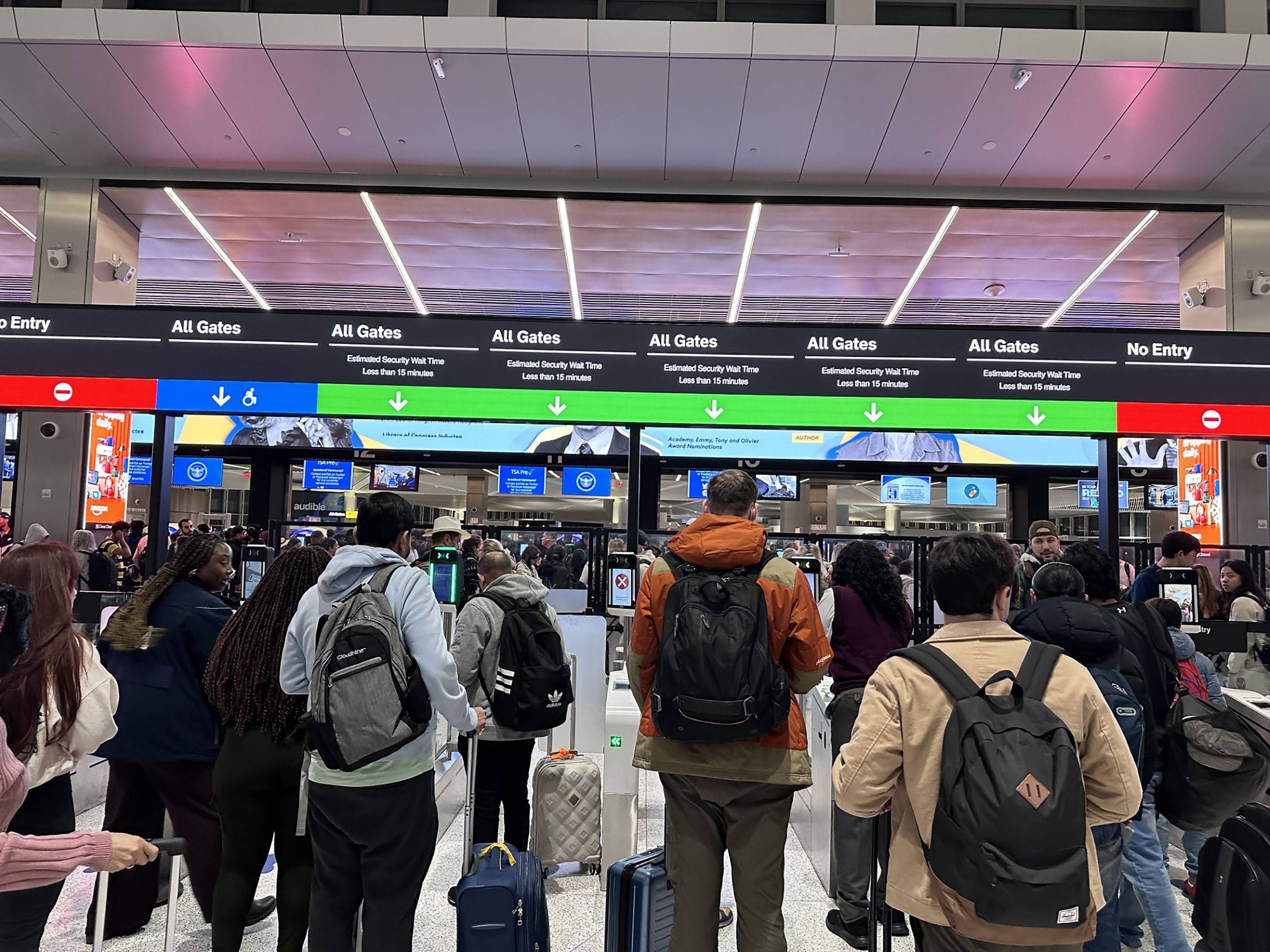The Impact Of Staffing Shortages On Newark Airport Operations

Table of Contents
Disruptions to Air Travel at Newark Airport Due to Staffing Shortages
Understaffing at EWR is directly translating into significant disruptions to air travel. Flight schedules are frequently affected, resulting in frustrating delays and cancellations. This negatively impacts the entire passenger journey. The types of staff experiencing shortages include:
- TSA Agents: Reduced staffing levels at Transportation Security Administration checkpoints lead to significantly longer security lines, causing passengers to miss flights and experience increased stress.
- Ground Crew (Baggage Handlers, Gate Agents): Shortages here result in baggage delays, mishandled luggage, and missed connections, adding to passenger frustration and inconvenience.
- Pilots and Flight Attendants: A lack of adequately rested and available flight crews leads to flight cancellations, delays, and, critically, potential for increased crew exhaustion, a serious safety concern.
- Airport Customer Service Representatives: Fewer representatives available means longer wait times for assistance with inquiries, lost luggage, or other travel-related issues.
While precise statistics correlating specific delays and cancellations directly to staffing shortages are difficult to obtain publicly, anecdotal evidence from passengers and news reports strongly suggest a direct correlation. The passenger experience is severely impacted, leading to increased stress, missed travel plans, and significant inconvenience. The overall negative impact on passenger satisfaction is undeniable.
The Economic Consequences of Staffing Shortages at Newark Airport
The economic repercussions of staffing shortages at Newark Airport are far-reaching and substantial. Airlines face significant financial losses due to flight cancellations and delays, impacting revenue and operational efficiency. Furthermore, the ripple effect extends to businesses reliant on airport operations:
- Airlines: Loss of revenue from cancelled and delayed flights, increased operational costs due to overtime pay and rebooking fees.
- Hotels, Restaurants, and Transportation Services: Reduced demand due to fewer travelers and flight disruptions negatively impacts revenue and employment within these supporting industries.
- Tourism: The negative perception associated with travel disruptions at EWR can deter tourists from visiting the region, resulting in a decline in tourism revenue.
The overall impact on the regional economy is significant. The reduced revenue streams across various sectors translate to decreased economic growth and potential job losses, underscoring the severity of the situation. Quantifying the precise economic damage requires comprehensive economic modeling, but the negative impacts are demonstrably clear.
Addressing the Staffing Shortages at Newark Airport: Potential Solutions
Addressing the Newark Airport staffing crisis requires a multi-pronged approach involving collaboration between the airport authority, airlines, and government agencies. Several strategies can be implemented:
- Increased Wages and Benefits: Offering competitive salaries and benefits packages is crucial to attracting and retaining qualified employees.
- Improved Working Conditions and Employee Support Programs: Creating a positive work environment and providing adequate employee support can improve morale and reduce turnover.
- Investment in Employee Training and Development: Investing in comprehensive training programs can enhance employee skills and create career progression opportunities.
- Automation of Certain Tasks: Implementing self-service kiosks, automated baggage handling systems, and other technologies can alleviate workloads and improve efficiency.
- Collaboration and Coordination: Strong collaboration between stakeholders is essential to coordinate efforts and ensure the effective implementation of solutions.
Implementing these solutions will face challenges. Securing funding for increased wages and benefits, overcoming resistance to automation, and coordinating the efforts of various stakeholders require effective leadership and strategic planning. However, ongoing initiatives aimed at improving recruitment and retention are underway, indicating a commitment to addressing the issue.
The Role of Technology in Mitigating Staffing Shortages
Technology plays a crucial role in mitigating the impact of staffing shortages. Investments in technology can enhance efficiency and reduce reliance on human resources in certain areas:
- Self-Service Kiosks: These kiosks allow passengers to check in, print boarding passes, and drop off baggage independently, reducing the workload on ground crew.
- Automated Security Systems: Advanced security technologies can expedite the screening process, reducing wait times at security checkpoints.
- Improved Communication and Information Systems: Real-time updates on flight status, gate changes, and other relevant information can minimize passenger confusion and frustration.
While technology offers significant potential, it's crucial to acknowledge its limitations. Technological solutions cannot entirely replace human interaction and expertise, particularly in situations requiring personal assistance or problem-solving.
The Urgency to Address Staffing Shortages at Newark Airport
The impact of staffing shortages at Newark Airport is undeniable. The disruptions to air travel, the economic consequences, and the negative impact on passenger experience demand urgent and effective action. Addressing this shortage requires a concerted effort from all stakeholders, including airlines, the Port Authority of New York and New Jersey, and government agencies. We must invest in attracting and retaining employees, implementing technological solutions, and improving overall operational efficiency. Learn more about the ongoing efforts and contact your representatives to support initiatives aimed at resolving the Newark Airport staffing shortages. The future of smooth and efficient air travel at EWR depends on a long-term solution that prevents future disruptions caused by understaffing.

Featured Posts
-
 The Everything App Sam Altman And Elon Musks Competing Visions
May 06, 2025
The Everything App Sam Altman And Elon Musks Competing Visions
May 06, 2025 -
 Gregg Popovichs Future Uncertain Will He Coach The Spurs This Season
May 06, 2025
Gregg Popovichs Future Uncertain Will He Coach The Spurs This Season
May 06, 2025 -
 Mengenal Lebih Dekat Batu Akik Yaman Favorit Kolektor Indonesia
May 06, 2025
Mengenal Lebih Dekat Batu Akik Yaman Favorit Kolektor Indonesia
May 06, 2025 -
 Patrick Schwarzenegger Addresses Nepotism Claims Regarding White Lotus Casting
May 06, 2025
Patrick Schwarzenegger Addresses Nepotism Claims Regarding White Lotus Casting
May 06, 2025 -
 Rumer Williss Cryptic Ashton Kutcher Post And Subsequent Apology
May 06, 2025
Rumer Williss Cryptic Ashton Kutcher Post And Subsequent Apology
May 06, 2025
